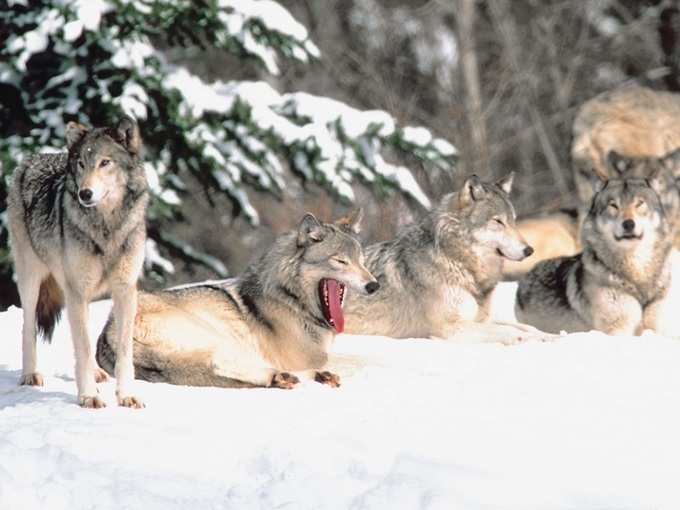 Till date, most of us believed that only humans are susceptible to
Till date, most of us believed that only humans are susceptible to While conducting the study, the researchers carefully observed the behavior of these wolves for 254 hours over the course of five months, watching to see what happened when one of the wolves yawned and others were nearby.
The scientists, then, discovered that yawning occurred significantly more often when the subjects were exposed to the yawn of another in the pack.
"Wolves' susceptibility to yawn contagiously was affected by the strength of the social bond with the initial yawner, with wolves yawning more frequently to close social partners' yawns than to other individuals' yawns," said lead author Teresa Romero, a researcher from The
"In wolves, as well as in primates and dogs,